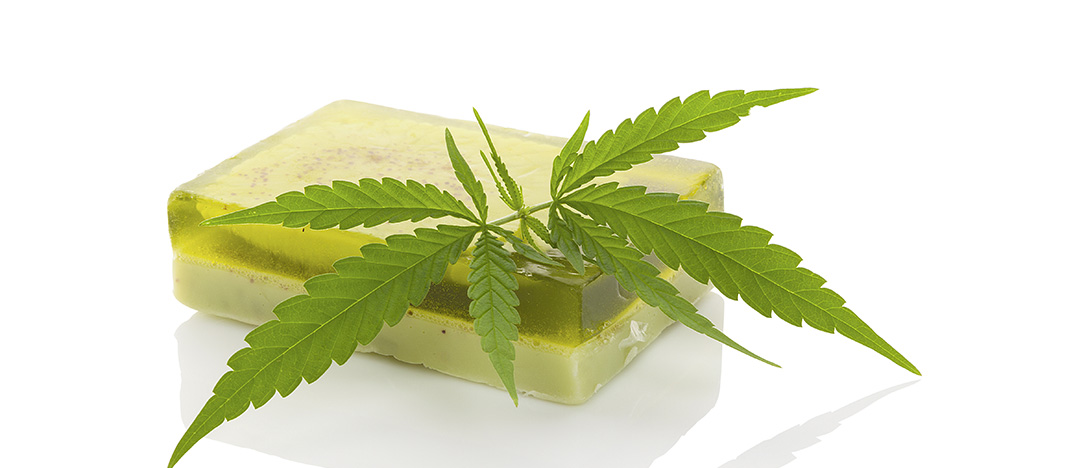
Cannabidiol (CBD), as the main non-psychoactive ingredient of cannabis, is neuroprotective and has antipsychotic and antiepileptic effects. In addition, its anti-inflammatory and antioxidant properties are also obvious, so it has been widely used in skin care products abroad. As a sleeping giant in the CBD industry, the market potential of skin care products will be fully tapped.
The $18 billion skincare industry is seeing a rush of new CBD entrants, including big retailers such as Neiman Marcus, Sephora and Barneys, the Cannabis Industry Daily reported. The market size of CBD derived from industrial hemp is expected to surge to $7 billion in the United States by 2023, according to the market forecast of Cannabis Industry Daily. With such a large market share, the skincare boom makes sense.
As retail giants move into the CBD skin care field, industrial hemp and CBD companies rely on their expertise to capture significant market share. Cannabis Industry Daily spoke with several skin care industry executives about CBD's market potential and why it is worth so much more than the current trend.
What is the scope of CBD skin care market?
Christy Tarleton, co-founder of YuyoBotanics: skin care is the best way to get CBD because consumers don't take it directly. One of the biggest fears people have about CBD is that it can be stimulating, so people have a lot of other concerns when it is used for skin care. But consumers don't actually get excited about it, and industrial hemp has many medical benefits.
Jenelle Kim, co-founder of JBK Wellness Labs:
People have been using industrial hemp for thousands of years. Although the CBD industry is only now taking hold, it has appeared in traditional Chinese medicine as early as 2700 BC. Industrial hemp is considered as one of the 50 basic traditional Chinese medicines, which eliminates the uncertainty of many industrial hemp products.
"We get a lot of inquiries every day about CBD and skin care, but also about food nutrition, and a lot of people are watching. What's different now is that there's a growing awareness of the right manufacturing process, and maybe two years ago, people didn't know the difference, like whether the manufacturing site is in someone's home or whether it's an unlicensed institution. Now they know."
Martha Van Inwegen, co-founder of Life Elements: there are a lot of new products coming into the market every day, and there were still a lot of grey zones in the CBD industry, especially in the banking sector, before the passage of the farm bill in 2018. However, three years ago, we started experimenting with a mixture of industrial hemp, THC and CBD. There are far fewer restrictions on the production and sale of industrial hemp derived CBD than THC products.
Kathy·Georgeson, founder of Sacred·Simple·Beautiful:
As people gradually discover the powerful effect of CBD, the market of CBD in the field of skin care has just started, but people's love for CBD fully illustrates the potential of this market.
Amy·Andrey, co-founder of L 'eela Body Care:
We want to normalize CBD, and we hope people to ask "why don't you use CBD for skin care?” instead of "why use CBD on your skin?”. Now the range of CBD skin care products is beyond our initial expectations. The Midwestern states of Iowa, Michigan and Oklahoma all have a higher percentage of sales than initially expected. With the normalization of CBD products, there is virtually no limit to this market.
Where will CBD skin care go in 10 years?
Julie·Pellington is joint owner of JL Essencials in Boulder, Colorado:
Currently, larger skincare companies cannot enter the market without FDA approval.
Craig, co-founder of JBK Wellness Labs:
CBD will become mainstream in 10 years. It used to be an intriguing mystery ingredient, but now people are talking about it and it's becoming part of the common vernacular. Some mainstream companies have traditionally had no ties to cannabis because CBD was not their industry and now they want to add CBD to their products. Big retailers and department stores are also becoming more open to industrial hemp products.
Under the development of modern technology, the roots, stems, leaves, flowers, seeds and other parts of industrial hemp have high economic utilization value, which can be further processed into fiber, hemp seed oil and extracted THC. Industrial hemp can be legally grown and industrially developed and utilized after approval. Widely used in papermaking, textile, building materials, industrial oil, functional health food, cosmetics, medicine and other industries, it has been a new and competitive biological industry in recent years.
The extensive role of CBD is enabling all walks of life, setting off a new wave of development and consumption, which is bound to become a new economic growth point for all industries in the future.